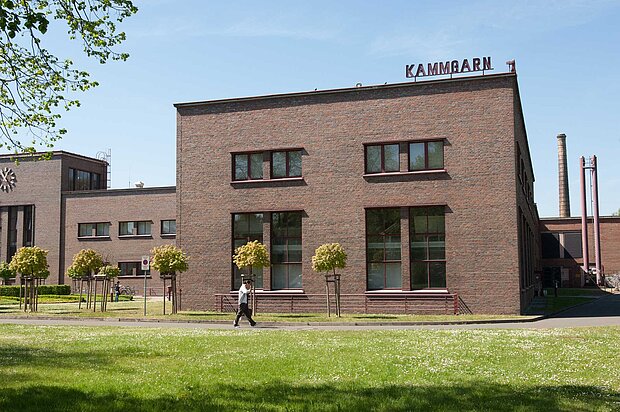
Kaiserslautern University of Applied Sciences - from the region, for the region, into the world
The Kaiserslautern University of Applied Sciences is a modern university for applied sciences and design. Around 5,500 students from more than 80 countries and some 150 professors study, teach, and research in five faculties at the Kaiserslautern, Pirmasens, and Zweibrücken campuses.
In 1996, the Kaiserslautern University of Applied Sciences emerged from a department of the former Hochschule Rheinland-Pfalz, which dates back to the mid-19th century, and utilized its independence to devote itself to the core tasks of undergraduate education, academic development, applied research and development and its resulting technology transfer, and to further improve its competitive standing.
Offered Courses
Over 80 innovative Bachelor's, Master's and continuing education degree programmes in the fields of natural and engineering sciences, design, economics, information and communication sciences are on offer. The degree programmes are practical, interdisciplinary and flexible, and are characterised above all by their regional relevance. The promotion of exchanges between students and professors with more than 100 partner universities worldwide guarantees internationality in the degree programme. The university also offers several English-language Master's degree programmes.
With a future-oriented further development of the range of courses on offer, with new study models such as dual, part-time and continuing education programmes, which the university often offers in close cooperation with companies and other institutions, and with the opening of the university to professionally qualified students, Kaiserslautern University of Applied Sciences is geared towards the needs of an increasingly heterogeneous student body and makes a significant contribution to securing the next generation of skilled workers and to the qualification of specialists and managers in the region and beyond.
Future-oriented degree programmes offered exclusively by the university, such as Applied Pharmacy, Business and Law in cooperation with the Zweibrücken Higher Regional Court and Leather and Textile Technology, are attractive beyond regional borders, as are Physician Assistant, Digital Engineering, Energy Engineering, Medical Informatics, Mechatronics, Virtual Design, Biomedical Micro Engineering and Applied Life Sciences, to name but a few.
Counselling and support services
Regardless of the specific study model, students benefit from a first-class counselling and support service at the university. Tutorials and work in small groups deepen the subject matter. Involvement in real projects or even a completely dual study programme gives students practical experience and contacts with (potential) employers right from the start. The majority of final theses are written in companies.
During the course of study, the university offers a comprehensive range of e-learning and hybrid teaching/learning formats, which provide students with the best opportunities for comprehensive preparation and follow-up of the course material, such as virtual laboratories, in which laboratory experiments can be rehearsed before the real experiment in the laboratory, thus minimising the error rate and waiting times in the laboratory. Course counselling and tutorials provide support and help with planning the course of study and preparing for examinations.
Research and technology transfer
Our research is interdisciplinary, application-oriented and ensures the future viability of the university with its specific range of degree programmes. It covers a broad spectrum of socially relevant topics and issues and usually takes place in co-operation with companies.
For several years now, Kaiserslautern University of Applied Sciences has been pursuing the path of raising its profile in research by establishing applied research specialisations. These research centres are university-wide associations of professors with third-party funding. They are interdisciplinary and future-orientated. The University Senate has established four research centres, all of which are funded by the state's research initiative as a profile-building measure:
Integrated miniaturized Systems (IMS)
Reliable, Sofware-intensive Systems (ZUSIS)
Sustainable Materials Products and Processes (STAMP)
Highly Efficient Technical Systems (HTS)
In addition to its research specialisations, the university has established several in-house institutes in recent years in subject areas with strong third-party funding, such as the Institute for Plastics Technology West Palatinate at the Pirmasens campus or the Institute for Sustainable Building and Design INBG. In cooperation with two other universities and the DLR, the ‘Neustadt Wine Campus’ was established across universities, focussing on viticulture and oenology in teaching and research. Other research facilities and institutes at our university, such as the Institute for Biobased Chemistry or ed-media e.V., work on tasks from science and industry.
The university also runs the start-up office together with RPTU and is a member of regional and national research networks and associations, such as the Science & Innovation Alliance Kaiserslautern e.V., the leading network for digital transformation, future innovations and interdisciplinary cutting-edge research www.science-alliance.de

The Ministry enters into agreements on objectives with Rhineland-Palatinate's universities in order to increase the universities' scope for action.
The focus here is on the joint and cooperative shaping of processes in science policy and the effective meeting of challenges, above all in order to implement tailor-made solutions.